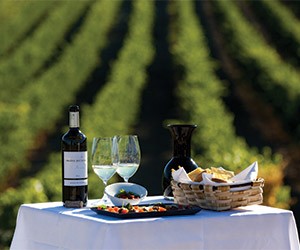Exciting and diverse, Spain’s bustling capitals have always offered a wealth of sights and sounds for international visitors. Today, cities throughout the country are introducing inspired options for visitors and groups that highlight authentic local experiences in terms of venues, activities and gastronomy—all helping to boost social interaction, economic growth as well as reduce collective carbon footprints.
Mi Casa Es Su Casa
In the Spanish capital of Madrid, the focus has been on sprucing up vintage venues to showcase their storied heritage.
“Over the past few years, we have met a growing demand for authentic cultural offerings by inaugurating new hotels in distinctive settings and renovating old classics,” said Madrid Convention Bureau Director David Noack Perez.
Madrid’s newest wave of quality hotels are often former townhouses or one-time mansions that look and feel more like noblemen’s homes than a temporary place to lay down your head for the night. Boutique stays along this vein include The Principal Madrid Hotel, opposite the Circulo de Bellas Artes; the Urso Hotel & Spa Madrid; the Hotel Unico; and the newly opened Totem, located in the upscale Salamanca district.
The MICE market also offers interesting prospects with the reopening of top-notch classic hotels such as the NH Collection Madrid Eurobuilding and NH Collection Madrid Colon, Iberostar Las Letras Gran Via, Novotel Madrid Center, Courtyard by Marriot Madrid Princesa and the Madrid Marriott Auditorium Hotel & Conference Center.
Newcomers of note are properties from Palladium Hotel Group: Only You Boutique Hotel Madrid and Gran Melia Palacio de Los Duques, which features the best of both worlds: a regal 19th century palace suitable for larger groups, located next to the Royal Palace, Royal Theatre and Almudena Cathedral.
Meanwhile, Barcelona has the great distinction of being the world’s first city to obtain a Biosphere certification—recognized by UNESCO and the Global Sustainable Tourism Council (GSTC)—and given to the Catalan capital for its commitment to sustainable practices. For groups, arrival by air remains a challenge in terms of sustainability, but Barcelona encourages visitors to get around using eco-friendly means.
“More than 80 percent of our city’s mobility is done on foot, by bike, eco taxi or public transport,” said Joana Homs, manager of Barcelona Sustainable Tourism, an organization that works with companies ready to make a difference. “Participating partners [venues and hotels] do their part by promoting local products and implementing energy efficiency programs and recycling programs,” she said.
Some of Barcelona’s MICE-friendly hotels also take pride in focusing on sustainability, including the Crowne Plaza Barcelona-Fira Center, Fairmont Rey Juan Carlos I, Hotel Alimara Barcelona, Hotel Barcelona Princess and Melia Barcelona Sarria.
Newer boutique stays, some located in historic buildings, include Casa Bonay; The Serras; Cotton House Hotel, Autograph Collection; and the city’s newest addition, Monument, situated on the ritzy fashion avenue Passeig de Gracia.
Vintage Venues
It’s no secret that many of Spain’s most iconic buildings can be hired for meetings or events. A memorable experience to be certain, but not without a number of limitations. For one, guests are only allowed in designated areas arranged to suit the event, which means the venue becomes background filler rather than an experience in itself.
Spanish event planning company Greatness solves this dilemma by offering full access to a collection of privately owned castles, wineries, villas and stately homes for the ultimate in-your-shoes experience. During a stint working at the World Bank, founder Isabel Benjumea noticed jet-setting colleagues rarely traveled to Spain.
“They felt we didn’t have comparable products, so right then and there I decided to do something about changing their minds,” she said.
Greatness connects property owners with guests who want to see beyond the surface and come away with a new appreciation for a history they would otherwise never have known existed.
PageBreak
Benjumea’s team can arrange practically anything, from dramatic moments in the Marques de la Motilla Castle—an ancient, nine-tower castle on the outskirts of Cordoba—to the Satrustegui Tower—a 19th century manor house overlooking the shore of San Sebastian’s La Concha beach—or the arched, boldly hued Marquesa de Tenorio Palace, a 13th century building once part of the Royal Palace in Seville. With over 30 (and counting) country-wide properties in the company’s portfolio, a suitable space is available for all wants and tastes.
“We provide exclusivity,” Benjumea said. “Not just a glance, but a fabled lifestyle unfolds right before their eyes.”
In Barcelona, Gaudi fans will also have a chance to revisit history this year; World Heritage Site Casa Vicens, the famed architect’s very first commission, will open to the public for the first time ever (this fall) as a museum. In addition, Gaudi’s little-known Colonia Guell crypt, located on the outskirts of Barcelona, can be visited by groups and is a member of the region’s sustainability project.
Cutting Edge
In Madrid, hotels are emerging as the choicest venues for quality cuisine.
“Nowadays, savvy international travelers seek more than just accommodations and high-tech meetings spaces, they also want to experience the essence of the host city through gastronomy and social activities,” said Noack Perez.
Groups can find these experiences in various venues, including the NH Collection Madrid Eurobuilding, which features the cuisine of three-Michelin-star chef David Munoz in his restaurant DiverXO, while celebrated chef Ramon Freixa brings his two-Michelin-star experience to both Hotel Unico and The Principal Madrid Hotel. Urso Hotel & Spa Madrid shares the wealth by providing a pop-up kitchen for on-the-rise chefs every six weeks.
Madrid restaurants actively promoting the country through their look or products include the aristocratic El Perro y la Galleta; the restored former mini-palace, La Maquina de Jorge Juan; and the bi-level wine bar and bistro Angelita.
As one of world’s reigning culinary leaders, Spain is always on the cutting edge of creativity and innovation. Barcelona’s latest responsibility trend engages visitors with an artisan approach to cuisine and a respect for home-grown ingredients.
New on the scene, Casa Bonay’s dining areas were designed for lingering, and Elephant, Monkey, Crocodile serves an eclectic menu of international taste sensations. Former carriage house Libertine, with its high ceilings and chandeliers, offers elevated “comfort food” and crafty cocktails while the newest addition to the scene, El Chiringuito de Bonay, a rooftop oasis, features daily yoga classes, a fragrant boxed urban garden, city views and a cocktail eatery hosting relaxed asaditos (BBQs) with a guest lineup of some of the city’s most innovative chefs.
Other notables include Balius Bar, known for its slow food scene; the cavernous vegetarian eatery the Green Spot; and Albert Adria’s eagerly awaited Enigma, rumored to be the last Adria restaurant in the city.
Food Tours
Food and wine tours have been trending in Spain for decades, but nowadays tour operators are reshaping their walking tour routes to include authentic mom-and-pop shops and eateries. Devour Food Tours, a leading food tour operator in Madrid, Seville, Barcelona and Malaga, specializes in this type of business.
“Our tours have a positive economic impact on each of our local partners,” said American-born owner Lauren Aloise. “The selling point is working exclusively with small businesses, each using only regionally grown products, which in turn provides them with a way to stay afloat on their own merit,” she said.
Groups can visit foodie gems in parts of Spanish cities rarely seen by visitors and learn the backstory of how a traditional dish came to be. Aloise posts plenty of information about her tours online but doesn’t worry people will steal it and dine there on their own.
“The visit itself, the authenticity of the venues and people are about 75 percent of the experience,” she said.






